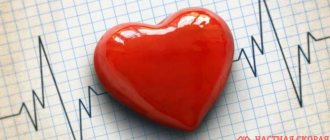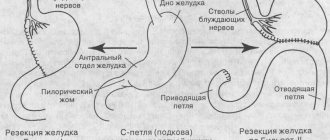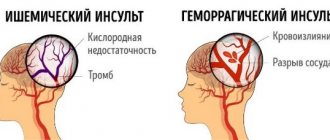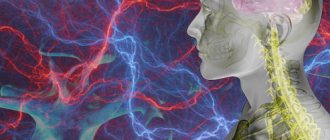Home>Articles>What does alcohol do when it enters the body through blood vessels: consequences, possible diseases
quick menu (hide)
- What does alcohol do to the heart and blood vessels?
- What happens to the heart and blood vessels with constant drinking of alcohol?
- How to quickly eliminate the effect of alcohol on blood vessels and organs
- What does alcohol do to the blood vessels and body of pregnant women and the fetus?
- How to improve the functioning of the heart and blood vessels after drinking alcohol
Today, most entertainment events do not take place without the consumption of alcoholic beverages. That's how it is with us. Only children and pregnant women leave the table sober. In the midst of general fun, almost no one thinks about how alcohol affects the heart, liver, kidneys, brain, and blood vessels. Awareness of the harm comes in the morning, when a hangover sets in. The discomfort is as follows:
- severe headaches;
- frequent vomiting;
- general weakness, lethargy;
- tremor of the limbs;
- constant thirst;
- difficulty breathing.
The state of withdrawal occurs 5 hours after drinking alcohol. During this period, it is worth taking care of removing toxic substances from the body. Detoxification can be carried out using sorbents . It is worth drinking activated carbon at the rate of 1 tablet per 10 kg of body weight of a person experiencing a hangover.
Content:
- The importance of blood vessels in the human body
- Does alcohol dilate or constrict blood vessels in the brain and internal organs?
- Can alcohol be beneficial?
- Changes in blood composition
- How to protect and strengthen blood vessels
The benefits and harms of alcohol-containing drinks are often debated. Some claim that with their help you can get dilated blood vessels and warm up on a frosty day in nature. Others say that ethanol, on the contrary, causes spasms in the circulatory system, which are dangerous to health. Who is right? Does alcohol really dilate blood vessels or does it still trigger a spasm reaction? This will be discussed below.
Where to go for help?
To help patients with alcoholism, as well as other types of drug addiction, there are specialized institutions in our country - drug treatment clinics. Each dispensary serves a specific area. People living in the area can go there on their own or with the referral of other specialists. They and their relatives will be provided with:
- advisory assistance
- examination
- treatment
Doctors working in dispensaries conduct examinations of patients, medicinal treatment and psychotherapy, and bring patients out of a hangover. Physiotherapeutic procedures are widely used.
The importance of blood vessels in the human body
Before we talk about whether alcohol narrows or dilates blood vessels, let's talk about the meaning of the latter. There are vessels in all parts of the body, face, and limbs. They carry blood from one organ to another. They serve as a connecting link, without which the full functioning of the human body is impossible.
After drinking alcohol and under the influence of other negative factors, the composition of the blood changes greatly. The concentration of toxins, waste, and various toxic compounds increases in it. As a result, failures occur. They can lead to irreversible consequences and even death.
Without proper blood circulation, life is basically impossible. That is why it is important to know which alcohol dilates blood vessels, which constricts it, and whether it can be drunk to “warm up”.
Scientists' conclusions
Grape wine is rightfully considered the most useful among products containing ethanol . Dutch scientists, using the findings of numerous studies, came to the following very interesting conclusions. According to the exact data that resulted from the tests, the benefits of alcohol in small doses are as follows:
- Decrease in the population mortality index. This most important indicator of demographic well-being shows an increase of 20-30% if the tradition of the people includes drinking alcohol for ritual purposes or on holidays. In this case, the daily intake of strong alcohol can be 15-20g, and this is only if the members of the group do not have the studied severe chronic diseases.
- Reducing the risk of developing severe pathological conditions due to the presence of heart and vascular diseases in a person.
The findings of these studies were confirmed by Swiss scientists. But according to their observations, people who consume ethanol in small portions every day visit doctors less and spend less money on medical services.
Does alcohol dilate or constrict blood vessels in the brain and internal organs?
The answer to this question can be either positive or negative. Much depends on factors, including:
- age of the drinker;
- usual dose of alcohol consumed;
- type of alcohol used;
- frequency of ethanol intake;
- presence of acute/chronic diseases;
- general health.
If a young man who does not have any diseases drinks a small amount of alcohol once, then everything will be fine with his blood vessels. The blood will become less viscous and blood circulation will increase. But if an alcohol addict drinks alcohol, he may suffer a stroke, heart attack and other dangerous complications. There can no longer be any talk of security here.
Alcohol affects blood vessels in the following ways:
Soon after drinking, ethyl alcohol enters the bloodstream and spreads throughout the body. Taking into account the dose used, it can remain there for five hours or longer. During this time, it manages to have a poisonous effect on the internal organs.
Blood flow increases as soon after drinking alcohol the blood vessels dilate. It can get to the point where the capillaries begin to burst.
Due to the dilation of blood vessels, blood pressure decreases for a short time.
- Soon the blood flow increases significantly, the heart begins to work much faster. Overload of the heart muscle is observed.
- Adrenaline is actively released. It is thanks to him that the drinker experiences relaxation and euphoria.
- The vessels narrow sharply. Blood accumulates in certain areas - the pressure rises. A hypertensive crisis may develop.
- The patient has a desire to lie down and sleep.
- The walls of the blood vessels expand again. Blood pressure decreases. A headache occurs. Alcohol addict gets sick.
Consequently, alcohol first dilates blood vessels and then narrows them. Its effect on the human body is so specific. Therefore, drinking it to feel warm in the cold is dangerous. At first, the effect of warmth spreading through the body will be created, but soon it becomes even colder. If a person drinks again, he will become intoxicated and generally lose control of his sensations. And this is fraught with frostbite.
The effect of alcohol on the heart
Constant expansion and contraction result in premature wear of the arterial membranes.
The risk of aneurysm and rupture increases. Especially when the pressure is high. The body is forced to increase cholesterol production to strengthen the most problematic areas. So the internal clearance becomes even smaller. It causes platelets to clump together and become clogged. Against this background, the following develop:
- Coronary insufficiency.
- Cardiomyopathy.
- Arterial stenosis, ischemic heart disease.
- All conditions are created for post-infarction necrosis of individual areas.
Can alcohol be beneficial?
“Swing”, caused by relaxation and spasm of blood vessels after drinking, is very harmful to health. They impair the functioning of the entire body as a whole. It is especially dangerous if the drinker is deficient in vitamins and minerals. Then the risks for internal organs increase significantly.
There is an opinion that small doses of ethyl alcohol are beneficial and cannot harm. It is a myth. Even a small dose of drinking causes a decrease in blood pressure. As a result, the vessels become less elastic, expand significantly, and blood flows faster to the organs. It would seem that there is nothing wrong with this, but it is not. After all, drinking ethanol contributes to:
- The appearance of disturbances in the activity of the cardiovascular system. Under the influence of alcohol, arteries and capillaries either narrow or increase in volume. This continues until ethyl alcohol is completely eliminated from the body. Such changes are abnormal and lead to premature wear and tear of the cardiovascular system.
- Hemorrhage. At some point, the vessels may not be able to withstand the changes occurring to them. Then they burst. This causes heart attack, stroke, thrombosis, and internal hemorrhage.
The situation is aggravated by the fact that usually those people who are used to drinking smoke and eat poorly. This means that their internal organs are already far from ideal, so disruption of the blood supply is unacceptable.
What factors increase the risk of CVD?
Cardiologists divide all risk factors into 2 groups: controlled and uncontrolled. The first include those that a person is not able to influence. These are gender, age, hereditary predisposition, ethnic characteristics, the presence of diabetes mellitus or immune diseases. The second group includes controllable risk factors for cardiovascular diseases:
- smoking;
- high blood cholesterol levels;
- violation of the ratio of blood lipid fractions;
- arterial hypertension;
- eating a lot of salt;
- obesity;
- alcohol consumption;
- stress;
- low physical activity.
If you arrange them according to the degree of impact on health, then smoking will be in 1st place. It increases the likelihood of CVD by 50%.
But is there any connection between bad habits? Drinking alcohol and smoking are classified as so-called addictive behaviors. It is characterized by the fact that a person strives to escape from a traumatic or unpleasant reality using various means that change the mental state. Did you drink? Smoke...
There is an interesting pattern: among those who drink alcohol, there are much more smokers than the population average. And vice versa: people who smoke are more likely to allow themselves a drink or two.
This feature is associated with the biochemistry of the brain: substances act on nicotinic and other receptors. Their effect is mutually enhanced and reinforced by a feeling of immediate reward and social stereotypes. Studies have shown that vascular damage and the development of atherosclerosis are a common occurrence when smoking and drinking “in moderation” - that is, in people who believe that they “drink like everyone else” and do not harm their health with their behavior.
Changes in blood composition
Once in the systemic bloodstream, ethyl alcohol corrects the composition of the blood. Red blood cells suffer the most from all components of biological fluid. Ethanol destroys their outer shell, which increases the risk of microthrombi formation.
Blood sugar levels drop after drinking. As a result, there is a jump in cholesterol. A large amount of waste appears, which is one of the causes of alcohol intoxication.
It is important to understand that not a single milligram of alcohol passes through the body without leaving a trace. Therefore, doctors never tire of repeating: alcohol causes irreparable damage to health. You should try to take it as rarely as possible, or even better, stop using it completely.
How many brain cells does 100 grams of vodka kill?
When consumed, alcohol immediately enters the bloodstream and reaches the brain within 5 minutes. The first effect of euphoria occurs due to the release of endorphins, so the person begins to feel happy and sociable. Alcohol does not kill brain cells, but it does have short- and long-term effects on them. If you drink 100 grams of vodka, 8,000 nerve cells will be damaged.
How to protect and strengthen blood vessels
To avoid dangerous changes in the body’s functioning after drinking, narcologists use infusion therapy. It is based on the drip administration of drugs that neutralize ethanol and accelerate the elimination of its toxic metabolites.
The following solutions have an excellent effect on blood vessels:
- Saline solution 5%. It can be combined with a 10% glucose solution. This mixture effectively cleanses the blood, restores healthy water and electrolyte balance, and increases vital energy levels.
- Hemodez. A detoxifying composition that binds low molecular weight substances that circulate in the systemic circulation and ensures their rapid elimination from the body. Creates conditions for glomerular filtration and increased renal blood flow, enhances diuresis.
- Ringer's solution. Salt composition with a balanced content of electrolytes. Shows detoxification properties, normalizes the water and electrolyte composition of the blood. Can be used as a means to replenish circulating blood volume.
- Rondex. Hemodynamic drug. It is used for therapeutic and prophylactic purposes if it is necessary to restore normal blood pressure after binge drinking.
All these medications are available to patients at the drug treatment clinic. A person who has experienced alcohol intoxication should not administer them to himself. Therefore, if after many days of drinking your health has deteriorated significantly, be sure to make an appointment with a narcologist. This way you will protect your blood vessels and heart.
Absolute contraindications
But, there are a number of conditions in which alcohol is strictly contraindicated. Here are the most basic ones:
- Alcohol addiction. Even if the disease has subsided and there is no longer addiction, even a small portion will reverse the problem. This is no joke.
- Drug incompatibility. There are a number of drugs that cannot be combined. Some stop working, others increase their harmful effects. And there are those who form an “explosive mixture”. Sedatives, hypnotics, anti-inflammatory drugs, tranquilizers, some antibiotics, antihistamines, antispasmodics, antiplatelet agents, hormones and a number of others. Therefore, if you are taking any medications, ask your doctor about compatibility.
- Chronic diseases. The presence of any chronic diseases is a reason to limit yourself to one glass. But there are conditions in which this is strictly prohibited. These include diabetes mellitus, coronary disease, hepatitis, atherosclerosis, stomach ulcers, mental illness and the postoperative period.
Literature:
- Microcirculation channel and vessels of the brain under the conditions of alcocholic intoxication in experiment / A. A. Kalaev, A. A. Moldavskaya, A. V. Gorbunov; Russian Academician Natural Sciences, Astrakhan State. honey. acad. — Moscow: Acad. Natural Sciences: Astrakhan State. honey. acad., 2007 - 199 p.
- Heart attack, stroke, sudden death. Risk factors, warning signs, prevention. / Lipovetsky, Boris Markovich. - St. Petersburg: SpetsLit, 2015. - p.
- Risk factors for arterial hypertension / V. R. Weber, B. B. Fishman; Feder. education agency, Novgorod. state University named after Yaroslav the Wise, Novgorod. scientific Center of the Northwestern Branch of the Russian Academy of Medical Sciences. — St. Petersburg: Novgor. state univ., 2005 (St. Petersburg: Printing house “Science”). — 207 p.
The text was checked by expert doctors: Head of the socio-psychological service of the Alkoklinik MC, psychologist Yu.P. Baranova, L.A. Serova, a psychiatrist-narcologist.
CAN'T FIND THE ANSWER?
Consult a specialist
Or call: +7 (495) 798-30-80
Call! We work around the clock!
Some interesting facts
Finally, check out these interesting facts:
- Fat people get drunk faster. Muscle mass is very susceptible to alcohol, so much less of the intoxicating substance reaches the brain. If you want to improve your capabilities, run to the gym.
- Strange Vikin rituals. The Vikings consumed it from the skulls of defeated enemies
- The strongest beer in the world. Do you still consider beer low-alcohol? But in vain. Brewmeister's Snake Venom is the strongest beer. Its strength reaches 70%.
- Popularity of the drink. About 6 billion liters of vodka are drunk annually.
- Dose. The ethanol level is approximately equal to a shot of vodka, a glass of wine and half a liter of beer.
Mandatory provisions
There is constant debate in society about what it means to “ drink in moderation ” and what doses may be harmless or beneficial? Scientists believe that in order to be able to relax while drinking alcohol, you must adhere to the following guidelines:
- do not change the type once chosen,
- adhere to a single daily dosage and avoid volume fluctuations,
- Use this medicine only in the first half of the day.
Following these rules will prevent you from experiencing intoxication. If the dosage is not exceeded, the hops cannot go to your head. The optimal dosage is 20 g of 100% ethanol.
The required quantity is calculated based on the following considerations. 20 ml of pure alcohol is contained in 500 ml of beer having an average degree, or in 50 ml of natural wine of our own production. strong is used as a medicine , then it is limited to a measure of 20-25 ml.
The most correct, health-improving solution is to drink homemade wine from black or red grapes.
Results of the experiments
The results were based on data that reported the causes of deaths and the amount of alcohol consumed on a daily basis by people in the focus group. The results were collected based on the largest medical survey, which was carried out in 1999-2008.
Subsequently, findings were published stating that the benefits of drinking alcohol or other alcohol-containing products on a daily basis were based on figures that could be considered errors . There has been no clear relationship confirmed between daily experiences and improvement in the condition and function of the heart and blood vessels. The majority of the non-drinkers group included people who had just reduced their intake or stopped drinking due to a sharp deterioration in their health.
The studies left aside the fact that people who did not drink , due to their lack of enzymes responsible for breaking down alcohol, were generally much stronger and had better health indicators compared to the average population.
As a result of recent tests, doctors at the American Heart Center came to the conclusion that even small portions of ethanol can have an extremely negative effect on overall health.











